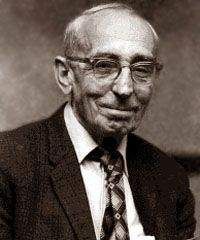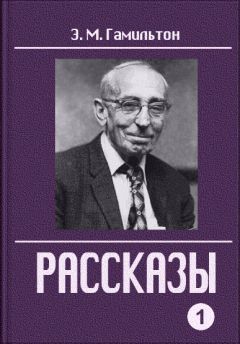Пользователь - o 3b3e7475144cf77c
mildly. "They have the raw materials and you have the machines."
"Yes, Budd, but one can't think merely about business; there are moral factors."
"But might not the Reds be toned down and acquire a sense of responsibility, just as well as
the Nazis?"
"We can't trust the blighters."
"I'm told that they meet their bills regularly. The Chase National gets along with them quite
well."
"I don't mean financially, I mean politically. They would start breaking into the Balkans, or
India, or China; their agents are trying to stir up revolution all the time."
Lanny persisted. "Have you thought of the possibility that if you won't trade with them, the
Nazis may? Their economies supplement each other."
"But their ideologies are at opposite poles!"
"They seem to be; but you yourself say how ideologies change when men get power. It seems
to me that Stalin and Hitler are self-made men, and might be able to understand each other.
Suppose one day Stalin should say to Hitler, or Hitler to Stalin: 'See here, old top, the British
have got it fixed up for us to ruin ourselves fighting. Why should we oblige them?'"
"I admit that would be a pretty bad day," said young Lord Wickthorpe. He said it with a
smile, not taking it seriously. When Rick pinned him down to it, he gave yet another reason
why it was impossible to consider a large-scale deal with the Soviet Union—the effect it would
have upon politics at home. "It would set up the Reds, and it might bring labor back into
power."
Said Rick to Lanny, when they were alone: "Class is more than country!"
VIII
The Nazi program of repression of the Jews was being carried out step by step, which was
going to be the Nazi fashion. Civil servants of Jewish blood were being turned out of their jobs
and good Aryans of the right party affiliations put in their place. Jewish lawyers were
forbidden to practice in the courts. "Jew signs" were being pasted or painted on places of
business which belonged to the despised race. Beatings and terrorism were being secretly
encouraged, for the purpose of driving the Jews out and depriving them of jobs and property.
When such incidents were mentioned in the press they would be blamed upon "persons
unknown masquerading as Stormtroopers."
But refugees escaping to the outside world would report the truth, and there was a ferment
of indignation among the Jews of all countries; they and their sympathizers held meetings of
protest, and a movement was started to boycott trade with Germany. The reaction in the
Fatherland was immediate, and Johannes wrote about it—very significantly he wrote only to
Lanny, never to his son, and mailed the letters unsigned and with no mark to identify them. It
had been made a prison offense to give information to foreigners, and in his letters Johannes
addressed Lanny as a German, and warned him not to tell anyone in Paris!
The boycott was worrying the business men of the country, and at the same time enraging
the party leaders, and it was a question which point of view would prevail. Jupp Goebbels was
calling for a boycott of Jewish businesses in Germany, and the result was a panic on the stock
exchange—for some of the principal enterprises of the Fatherland were Jewish-owned,
including the big department stores of Berlin. These were the concerns which the original
party program had promised to "socialize," and now the ardent young S.A.'s and S.S.'s were on
tiptoe to go in and do the job.
The Cabinet was having one of its customary rows over the question, so Johannes explained.
The business magnates who had financed Hitler's rise were coming down on him; how could
they pay taxes, how could the government be financed, if rowdies were to-be turned loose to
wreck business both at home and abroad? The result of this tug-of-war was a curious and
rather comical compromise; the boycott which the party fanatics had announced to begin on
the first day of April was to be carried on, but it was- to continue for only one business day of
eight hours; then Germany would wait for three days, to see if there was a proper response
from the foreign agents and Jewish vampires who had been so shamelessly lying about the
Fatherland. If they showed repentance and abandoned their insolent threats, then Germany
would in turn permit the Jewish businesses to continue in peace; otherwise they would be
sternly punished, perhaps exterminated, and the blame would rest upon the Jewish vampires
abroad.
This boycott was the idea of Dr. Goebbels—the Führer himself being busy with the
reorganizing of the various state governments. On the evening before the event the crippled
little dwarf with the huge wide mouth spoke to his party comrades at a meeting in a hall of the
West End, and all over Germany the Stormtroopers listened over the radio. The orator called
for a demonstration of "iron discipline"; there must be no violence, but all Jewish
establishments would be picketed, and no German man or woman would enter such a place.
The day was made into a Nazi holiday. The Jews stayed at home, and the Brownshirts
marched through all the cities and towns of the Fatherland, singing their song to the effect that
Jewish blood must spurt from the knife. They posted "Jew signs" wherever there was a
merchant who couldn't prove that he had four Aryan grandparents. They did the same for
doctors and hospitals, using a poster consisting of a circular blob of yellow on a black
background, the recognized sign of quarantine throughout Europe; thus they told the world
that a Jewish doctor was as bad as the smallpox or scarlet fever, typhus or leprosy he
attempted to cure.
These orders were followed pretty well in the fashionable districts, but in poorer
neighborhoods and the smaller towns the ardent Stormtroopers pasted signs on the foreheads
of shoppers in Jewish stores, and they stripped and beat a woman who insisted on entering.
That evening there was a giant meeting in the Tempelhof Airdrome, and Goebbels exulted in
the demonstration which had been given to the world. The insolent foreigners would be awed
and brought to their knees, he declared; and since most of the newspapers had by now been
confiscated, the people could either believe that or believe nothing. The foreigners, of course,
laughed; they knew that they weren't awed, and the mass meetings and distribution of boycott
leaflets went on. But the Nazi leaders chose to declare otherwise, and next day there was a
washing of windows throughout Germany, and "business as usual" became the motto for both
Aryans and non-Aryans.
IX
There were curious outgrowths of this anti-Semitic frenzy. An "Association of German
National Jews" was formed, and issued a manifesto saying that the Jews were being fairly
treated and there was no truth in the stories of atrocities; some leading Jews signed this, and
the name of Johannes Robin was among them. Perhaps he really believed it, who could say?
He had to read German newspapers, like everybody else; those foreign papers which reported
the atrocities were banned. Perhaps he considered that the outside boycotts would really do
more harm than good, and that the six hundred thousand native Jews in the Fatherland were
not in position to offer resistance to a hundred times as many Germans. The Jews had
survived through the centuries by bending like the willow instead of standing like the oak.
Johannes didn't mention the subject in his letters, either signed or unsigned. Was he a little
ashamed of what he did?
It seemed to an American that a man could hardly be happy living under such conditions.
Lanny wrote a carefully guarded letter to the effect that Hansi was giving important concerts
and Irma various social events; they would be delighted to have the family present. Johannes
replied that some business matters kept him from leaving just now; he bade them not to worry
about the new decrees forbidding anyone to leave Germany without special passports, for he
could get them for himself and family whenever he wished. He added that Germany was their
home and they all loved the German people. That was the right sort of letter for a Jew, and
maybe the statements were true, with a few qualifications.
The Nazis had learned a lesson from the boycott, even though they would never admit it. The
brass band stage of persecution was at an end, and they set to work to achieve their purpose
quietly. The weeding out of Jews, and of those married to Jews, went on rapidly. No Jew could
teach in any school or university in Germany; no Jewish lawyer could practice; no Jew could
hold any official post, down to the smallest clerkship. This meant tens of thousands of
positions for the rank and file Nazis, and was a way of keeping promises to them, much easier
than socializing industry or breaking up the great landed estates.
The unemployed intellectuals found work carrying on genealogical researches for the
millions of persons who desired to establish their ancestry. An extraordinary development—
there were persons who had an Aryan mother and a Jewish father, or an Aryan grandmother
and a Jewish grandfather, who instituted researches as to the morals of their female ancestors,
and established themselves as Aryans by proving themselves to be bastards! Before long the
Nazis discovered that there were some Jews who were useful, so there was officially
established a caste of "honorary Aryans." Truly it seemed that a great people had gone mad;
but it is a fact well known to alienists that you cannot convince a madman of his own
condition, and only make him madder by trying.
By one means or another it was conveyed to leading Jews that they had better resign from
directorships of corporations, and from executive positions which were desired by the nephews
or cousins of some Nazi official. Frequently the methods used were such that the Jew
committed suicide; and while these events were not reported in the press, word about them
spread by underground channels. That was the way with the terror; people disappeared, and
rumors started, and sometimes the rumors became worse than the reality. Old prisons and
state institutions, old army barracks which had stood empty since the Versailles treaty, were
turned into concentration camps and rapidly filled with men and women; motor trucks
brought new loads daily, until the total came near to a hundred thousand.
Lanny wrote again to say what a mistake his friends were making not to come and witness
Hansi's musical and Irma's social triumphs. This time Johannes's reply was that his business
cares were beginning to wear on him, and that his physicians advised a sea trip. He was
getting the Bessie Budd ready for another cruise, this time a real one; he wanted Hansi and
Bess to meet him at one of the northern French ports, and he hoped that the Budds would
come along— the whole family, Lanny and Irma, Mr. and Mrs. Dingle, Marceline and Baby
Frances, with as many governesses and nurses as they pleased. As before, the cruise would be
to whatever part of the world the Budd family preferred; Johannes suggested crossing the
Atlantic again and visiting Newcastle and Long Island; then, in the autumn, they might go
down to the West Indies, and perhaps through the Panama Canal to California, and if they
wished, to Honolulu and Japan, Bali, Java, India, Persia—all the romantic and scenic and
historic places they could think of. A university under Diesel power!
X
This made it necessary for Irma to come to a decision which she had postponed to the last
moment. Was she going to take the palace for another year? She had got used to it, and had a
competent staff well trained; also she was established as a hostess, and it seemed a shame to
lose all this momentum. But, on the other hand, money was growing scarcer and scarcer. The
dreadful depression—Lanny had shown her the calculations of an economist that it had cost
the United States half a dozen times the cost of the World War. Thanks to the Reconstruction
Finance Corporation, interest payments on industrial bonds were being met, but many of
Irma's "blue chip" stocks were paying no dividends, and she was telling her friends that she
was living on chocolate, biscuits, and Coca-Cola—meaning not that these were her diet, but
her dividends.
She had Shore Acres on her hands with its enormous overhead; she had had to cut down on
her mother, and the mother in turn had notified all the help that they might stay on and work
for their keep, but there would be no more salaries. Even so, the food bill was large, and the
taxes exorbitant—when were taxes not? Mrs. Barnes's letters conveyed to her daughter a sense
of near destitution.
"You don't really care very much for this palace, do you, Lanny?" So asked the distressed one,
lying in the pink satin splendor of the bed in which Madame de Maintenon was reputed to
have entertained the Sun King.
"You know, dear, I don't undertake to tell you how to spend your money."
"But I'm asking you."
"You know without asking. If you spend more money than you have, you're poor, no matter
what the amount is."
"Do you think if we come back to Paris after the depression, I'll be able to start as a hostess
again?"
"It depends entirely upon how much of your money you have managed to hold on to."
"Oh, Lanny, you're horrid!" exclaimed the hostess.
"You asked for it," he chuckled.
Nearly a year had passed since the Queen Mother had seen her grandchild, and that was
something to be taken into consideration. Her satisfaction would be boundless; and it would
be a pleasure to meet all those New York friends and hear the gossip. Lanny could stand it if it
wasn't for too long. And what a relief to Uncle Joseph Barnes, trustee and manager of the
Barnes estate, to know that his charge wouldn't be drawing any checks for a year!
"Lanny, do you suppose that Johannes can really afford to take care of us all that time?"
"He could go alone if he preferred," replied the son of Budd's. "As a matter of fact, I suspect
the rascal has more money now than ever before in his life. He makes it going and coming;
whether times are good or bad; whether the market goes up or down."




